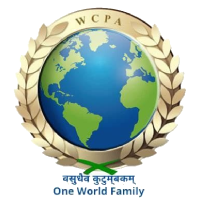WLA 35. Nuclear Contamination Act.
An Act including initial provisions for Transfer, Reconstitution and Integration of the
World Health Organization and (International) Atomic Energy Agency:
Nuclear Contamination Risk and Cost Assessment
Short title: Nuclear Contamination
- World Health Organization (WHO) shall review all radiation research and recommend health based safety regulations. Health professionals shall perform this review, including epidemiologists, oncologists, occupational and public health specialists, geneticists and paediatricians (not linked with the nuclear industries or nuclear medicine), rather than other scientists.
- The International Atomic Energy Association (IAEA) mandate to promote “peaceful nuclear technologies” is withdrawn. Nuclear technology promotion is prohibited, unless the technology is part of the disarmament, decontamination and sequestration process. Violation of this provision is unlawful (class 4 felony).
- This provision expands the IAEA mandate to safeguard against the spread of nuclear weapons to include monitoring the reduction and abolition of all nuclear weapons in the nuclear nations in cooperation with the World Disarmament Agency and the Enforcement System. The IAEA shall assist the World Disarmament Agency in all its nuclear related activities. The World Disarmament Agency shall include IAEA budgetary itemization in its annual budget to be submitted to the Provisional World Parliament and World Parliament.
- The United Nations Scientific Committee on the Effects of Atomic Radiation (UNSCEAR) mandate is amended to include the monitoring of increasing levels of background radiation and nuclear emissions from reactors and nuclear accidents. UNSCEAR shall submit budgetary reports and requests to the World Disarmament Agency. However, UNSCEAR is not entrusted with estimating risk. The World Health Organization shall estimate risk. The World Health Organization shall include projected cost for estimations in its annual budget to be submitted to the Provisional World Parliament and World Parliament.
- Decisions relative to the safety of farm land, food and water ingestion and refugee relocation is entrusted to WHO. The World Health Organization shall include projected cost for these decisions in the WHO annual budget to be submitted to the Provisional World Parliament and World Parliament.
- Investigation into the imprisonment of scientists and physicians who have spoken out on behalf of the public health relative to radiation exposure is a responsibility of the World Ombudsmus. The Human Rights Commission in Geneva shall establish a special raporteur to work with the World Ombudsmus. The Human Rights Commission shall communicate projected costs, so that the World Ombudsmus can include HRC budgetary itemization in its annual budget to be submitted to the Provisional World Parliament and World Parliament.
- The Provisional Executive Cabinet shall inform the respective agencies of the decisions of this Act within sixty days from the date of Act adoption.
- The Commission for Legislative Review shall review this Act on an ongoing basis. On at least an annual basis, the Commission for Legislative Review shall submit any recommendations for amendment before subsequent sessions of the provisional World Parliament, until such time that the Agency for Technological and Environmental Assessment together with the World Health Organization certify that the nuclear contamination risk crisis is safely resolved.
- This Act enters into effect immediately upon adoption by the Provisional World Parliament.
The Letter of Understanding between the IAEA and WHO that blocks WHO from warning the global public of radiological dangers is by this provision annulled. Neither IAEA nor WHO has the authority to refrain or interfere from warning the public of any radiological dangers that exist. However, the Standing Commissions of the provisional World Parliament shall refer the letter of understanding back to the provisional World Parliament at the 11th session of provisional World Parliament, to document to the public on the prior existence of the letter.
IAEA, ICRP (International Commission on Radiological Protection), and UNSCEAR (United Nations Scientific Committee on the Effects of Atomic Radiation) and national authorities must not interfere with the work of health officials in the measurement of deleterious effects of radiation and contamination. To interfere with the work of health professionals carrying out this work is unlawful (class 3 felony.) WHO is authorized to send health professionals onto any nuclear facilities to make necessary measurements. On entering nuclear facilities, health professionals must display identification, including official identification information from the WHO, and a WHO statement of the measurements to be taken. ICRP (International Commission on Radiological Protection) is not recognized as a viable agency of the United Nations, nor of the Earth Federation. This Act recommends that the public take extreme caution regarding any pronouncements made by the ICRP.
Nuclear Contamination Act was adopted April 2006, as World Legislative Act #35 by the
ninth session of the provisional World Parliament, meeting in Tripoli in conformance with Article 19 of the Constitution for the Federation of Earth. The Act was amended at the tenth session of provisional World Parliament, meeting June 2007 at Kara, Togo, West Africa.
Attested : Eugenia Almand, JD, Secretary
Provisional World Parliament
Derived from Recommendations:http://www.iicph.org/docs/chernobyl.htm (Dr. Rosalie Bertell, nuclear physiologist)

